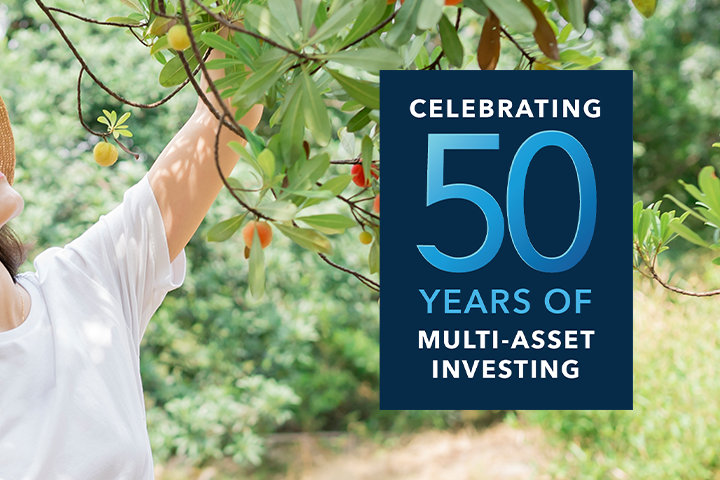WHY INVEST IN THIS FUND
A lower risk solution1 that aims to capture equity growth potential
Capital Income Builder could help you pursue equity growth without excessive exposure to market volatility, while seeking a smoother ride towards your investment goals.
1. Compared to a 100% global equity portfolio.
KEY BENEFITS
Seeking to capture growth in a lower-risk manner2
A prudently-managed portfolio designed to capture capital appreciation potential and income growth opportunities.
A lower risk solution2 to capture growth potential
Focusing on income-generating securities with lower volatility
A prudently-managed portfolio seeking reliable income
Primarily consists of quality dividend-paying stocks and bonds for income growth and to buffer against market downturns
Designed to offer downside resilience in volatile times
Aims to offer stability and capital preservation in choppy markets
2. Compared to a 100% global equity portfolio.
WHY CAPITAL GROUP
A leader in global investing
For more than 90 years, we have been searching the world for long-term opportunities, making Capital one of the world’s oldest and largest active mutual fund asset managers.
Global investing credentials
US$2.5T
in total assets managed
28 years
average investment experience of our portfolio managers
US$496B
in multi-asset strategies
Data as at 31 December 2023
To find out more, talk to your financial adviser, or visit our How To Subscribe page.
Sign up today.
Receive regular updates on industry-leading insights and timely articles delivered to your inbox from Capital Group
*Required
Risk factors you should consider before investing:
- This material is not intended to provide investment advice or be considered a personal recommendation.
- The value of investments and income from them can go down as well as up and you may lose some or all of your initial investment.
- Past results are not a guarantee of future results.
- If the currency in which you invest strengthens against the currency in which the underlying investments of the fund are made, the value of your investment will decrease. Currency hedging seeks to limit this, but there is no guarantee that hedging will be totally successful.
- The Prospectus – together with any locally-required offering documentation – set out risks, which, depending on the fund, may include risks associated with investing in fixed income, derivatives, emerging markets and/or high-yield securities; emerging markets are volatile and may suffer from liquidity problems.
All data as at 31 December 2023 in US$ terms and attributable to Capital Group, unless otherwise stated.
Glossary
Bond – A debt instrument, essentially a loan, issued by governments (a sovereign bond) or corporates (a corporate bond) and financed by investors. The bond holders receive interest payments, known as a coupon, and the principal of the bond when it is due.
Dividend – A sum of money paid regularly by a company to its shareholders out of its profits (or reserves).
Dividend yield – Dividend yield represents the ratio of dividends paid over the last 12 months to the net asset value as of the last month end. However, an annualised dividend yield is calculated on the basis of the most recent dividend payment when, in the last 12 months,
1. a share class has been launched for the first time; or
2. a share class changed its dividend payment frequency
- the dividend payment frequency was modified as a result of a corporate event (for instance a special dividend distribution or a closure and relaunch of the share class).
Downside resilience – An investment position that seeks to reduce the frequency and/or magnitude of capital losses resulting from the decline of a stock or a fall in the overall market.
Equity – Shares of ownership in a company.
Exposure – In investment terms, exposure refers to the amount of capital invested in a particular asset, industry or sector within a portfolio, and is usually expressed as a percentage.
Fixed income securities – A debt instrument issued by a government, corporate or other entity.
Investment-grade bonds – Assets rated BBB- or higher by rating agencies Moody’s, Standard & Poor’s or Fitch.
Treasuries – A marketable government debt security with a fixed interest rate and a maturity between one and 30 years.
Volatility – A statistical measure of the pace, frequency and magnitude of a security’s price movement over a period of time, expressed in standard deviation.
